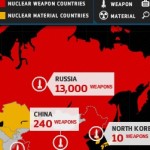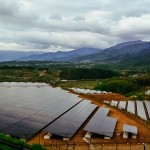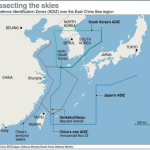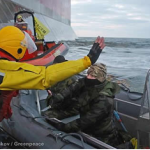by Tomochika Tokunaga 11 July 2014 Originally published 29 March 2014, Department of Environment Systems University of Tokyo. I. Update on the Current Status of Japan’s High-level Waste Disposal Program This report provides an update on the consideration of the possibility of deep borehole disposal in Japan, revising the report submitted to Nautilus Institute by the author […]
Archives
Policy Forum – “Six Party Talks and Multilateral Security Cooperation”

“Six Party Talks and Multilateral Security Cooperation” Building a New Security Architecture in Northeast Asia May 29, 2014 Presented to 9th Jeju Forum Panel by Peter Hayes, Director at the Nautilus Institute for Security and Sustainability. 1. Six Party Talks and Multilateral Security Cooperation It is self-evident that the Six Party Talks (6PT) as we knew […]
Policy Forum – Electric Chaiwallas
by Lalloobhoy Battiwala 1 April 2014 I. INTRODUCTION Kirk R. Smith wrote in an e-mail on his trip in Odisha, ’Another unforeseen revelation occurred on the trip, however. On the 3-hour drive back to the airport in the evening, the car driver pointed out to us that all the “chaiwallahs” (tea sellers) along the highway now […]
“Mutual Probable Destruction”: Nuclear Next-Use in a Nuclear-Armed East Asia?

by Peter Hayes 14 May 2014 I. Introduction Peter Hayes, Director of Nautilus Institute, writes that John on-fat Wong’s 1982 dissertation, Security Requirements in Northeast Asia, provides an important corrective for shallow thinking that informs calls for South Korea and Japan to proliferate nuclear weapons to match those of North Korea or the existing nuclear weapons states in […]
Policy Forum – Japan’s Energy Policy Impasse

by Andrew DeWit 22 April 2014 Andrew DeWit is Professor in the School of Policy Studies at Rikkyo University and an Asia-Pacific Journal coordinator. With Iida Tetsunari and Kaneko Masaru, he is coauthor of “Fukushima and the Political Economy of Power Policy in Japan,” in Jeff Kingston (ed.) Natural Disaster and Nuclear Crisis in Japan.This […]
ADIZ: a four letter word

Roger Cavazos asserts that spring on the Korean peninsula is often associated with provocations. This spring …
A Red Hunt In October – For Pirates, Hooligans and Spies…

In this essay, Nikhil Desai criticizes the violent Russian attack on the Greenpeace ship and the subsequent pre-trial detention of 30 activists. He argues that if concerns of energy security are allowed to degenerate into hallucinations of dominating the Arctic and brutal treatment of non-violent civic action, Russia or other such countries cannot be held to be responsible members of the international community of law-abiding states. The most powerful man in the world may now also be the most dreadful.
Nikhil Desai is an energy and environmental economist now dividing his time between Washington, DC and Ahmedabad, India.
Adapting to the Present Day – A Good Substitute for Future Climate Change?
Saleem Janjua argues that despite the substantial indecisiveness over climatic projections and their impacts, we should start adapting to the present day on the basis of recent changes in the climate. By adapting to present conditions and understanding them we may be able to offset future climate change impacts. Various bottom-up approaches (vulnerability assessment, risk assessment, resilience) could be very helpful in understanding the vulnerability of a country to current climate change and the rationales of adaptation in the local context.
Saleem Janjua is the editor of AdaptNet and a Nautilus Institute Associate.
Atomic Insurance for Atomic Insecurities
In this essay, Nikhil Desai explains the fears of anti-nuclear activists in India regarding its government’s alleged violation or weakening of the Indian law on civil nuclear liability as part of the Prime Minister’s visit to Washington, DC the weekend of 27th September 2013. He argues that the government’s opponents refuse to accept the reality of nuclear trade and operations, and should be more concerned about the institutional competence of India to manage the nuclear enterprises, civil or otherwise.
Nikhil Desai is an energy and environmental economist now dividing his time between Washington, DC and Ahmedabad, India. He is a Nautilus Institute Associate and a contributor to Nautilus’ Weekly Report.
Networks for Climate Adaptation in South Asia
Saleem Janjua stresses the need for creation of some innovative climate adaptation networks amongst South Asian countries working on climate adaptation. Practitioners, researchers, and policy-makers from across the South Asian region will be able to collaboratively use such networks to share evidence-based understandings from which they can design solutions to the many problems that will face people and places in coping with climate change.
Saleem Janjua is a Nautilus Institute Associate, the editor of the Climate Change Adaptation bi-weekly report (ADAPTNet) and a contributor to Nautilus’ Weekly Report.

